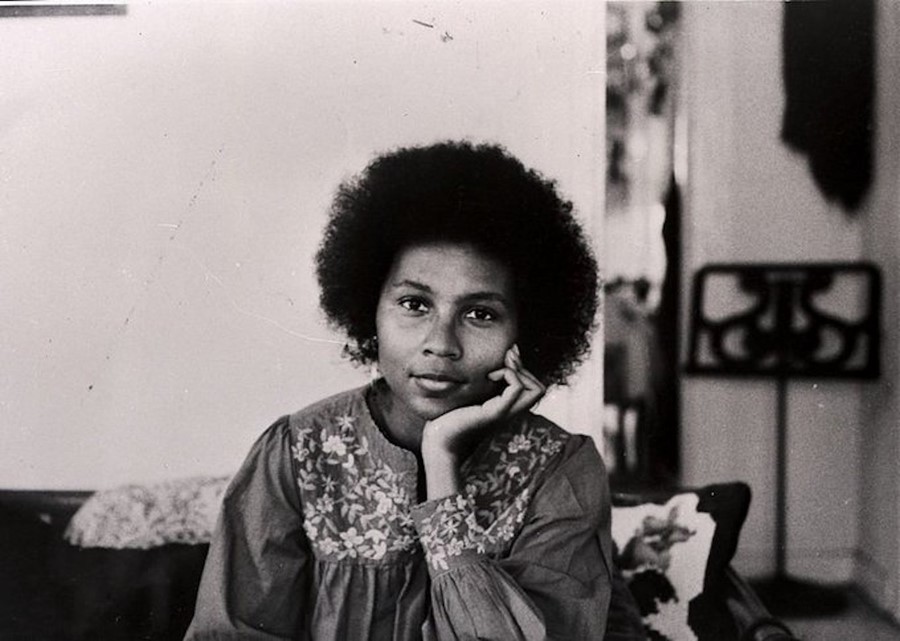The activist, who passed away this week, was one of the world’s most soulful and conscientious contemporary thinkers, writing over 30 books on race, feminism and capitalism. Here, we remember some of her most inspiring lessons
This week, news broke that bell hooks – the pioneering social justice activist, academic and author – had passed away at the age of 69. The tragic announcement was shared on Twitter yesterday by her niece, Ebony Motley, who revealed that hooks had died from an illness “at home, with family and friends by her side.”
The news hit the internet with a ripple, and then a wave. For decades, hooks – real name Gloria Jean Watkins – had been building a reputation as one of the world’s most soulful and conscientious contemporary thinkers, writing over 30 books on race, feminism, intimacy, class and capitalism. Her work was primarily about healing: about diagnosing society’s ills, and laying out optimistic, communal and open-hearted solutions. “Her loss is incalculable,” tweeted author Roxane Gay, after hearing the news of her death. “[Hooks’] dedication to the cause of ending sexism, sexist exploitation and oppression was exemplary,” added Margaret Atwood. “Her impact extended far beyond the United States: many women from all over the world owe her a great debt.”
As the news began to spread, so did hooks’ wisdom. On social media, screenshots of well-worn, lovingly annotated pages from her prolific back catalogue began populating people’s timelines. There were paragraphs pulled from her 1981 debut, Ain’t I a Woman?, in which she provocatively tore into both white feminism and traditional Black activism for their historical neglect of Black women. There were also words from 2000’s All About Love, in which hooks explores the notion of romantic, spiritual and familial love in capitalist society; and from 2004’s The Will To Change, where she dissects the toxic, repressive nature of modern masculinity.
For the Kentucky-born author, wisdom flowed freely: few have ever been able to describe, so sensitively and incisively, the root causes of injustice – both on an intimate psychological level, and on a larger societal one. To commemorate her immense life and legacy, we chose a selection of hooks’ most inspirational quotes – and a collection of texts you need to read next.
- “I believe that this nation can only heal from the wounds of racism if we all begin to love Blackness. And by that I don’t mean that we love only that which is best within us, but that we’re also able to love that which is faltering, which is wounded, which is contradictory, incomplete.”
- “All too often women believe it is a sign of commitment, an expression of love, to endure unkindness or cruelty, to forgive and forget. In actuality, when we love rightly we know that the healthy, loving response to cruelty and abuse is putting ourselves out of harm‘s way.”
- “The first act of violence that patriarchy demands of males is not violence toward women. Instead patriarchy demands of all males that they engage in acts of psychic self-mutilation, that they kill off the emotional parts of themselves. If an individual is not successful in emotionally crippling himself, he can count on patriarchal men to enact rituals of power that will assault his self-esteem.”
- “All too often we think of community in terms of being with folks like ourselves: the same class, same race, same ethnicity, same social standing and the like ... I think we need to be wary: we need to work against the danger of evoking something that we don’t challenge ourselves to actually practice.”
- “Sometimes people try to destroy you, precisely because they recognise your power – not because they don’t see it, but because they see it and they don’t want it to exist.”
- “Dominator culture has tried to keep us all afraid, to make us choose safety instead of risk, sameness instead of diversity. Moving through that fear, finding out what connects us, revelling in our differences; this is the process that brings us closer, that gives us a world of shared values, of meaningful community.”
- “Abuse and neglect negate love. Care and affirmation, the opposite of abuse and humiliation, are the foundation of love. No one can rightfully claim to be loving when behaving abusively.”
- “Knowing how to be solitary is central to the art of loving. When we can be alone, we can be with others without using them as a means of escape.”
- “Greed subsumes love and compassion; living simply makes room for them. Living simply is the primary way everyone can resist greed every day ... Living simply makes loving simple. The choice to live simply necessarily enhances our capacity to love. It is the way we learn to practice compassion, daily affirming our connection to a world community.”
- “There is light in darkness, you just have to find it.”
Further reading:
- All About Love: New Visions
- The Will To Change: Men, Masculinity and Love
- Ain’t I A Woman: Black Women and Feminism
- Where We Stand: Class Matters
- Feminism Is For Everybody: Passionate Politics
- Communion: The Female Search for Love
- Killing Rage: Ending Racism
- bell hooks in conversation with Maya Angelou, 1998
- Watch Cultural Criticism and Transformation, a two-part series on YouTube
- Watch bell hooks on Speaking Freely
